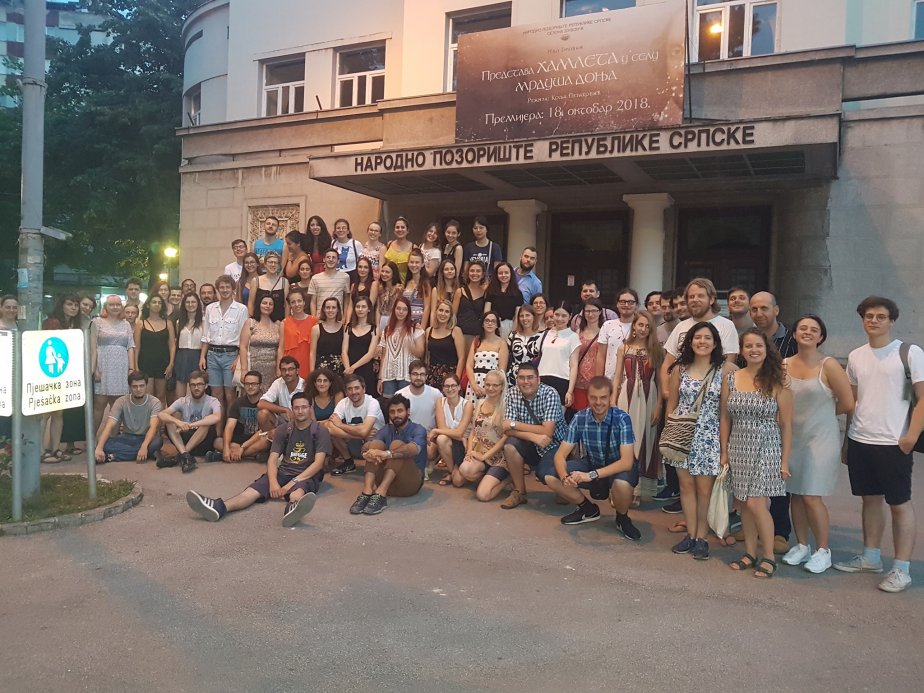
For the first two weeks of August, Katie attended the Eastern Generative Grammar (EGG) School, this year in Banja Luka (Bosnia). This was her second time at an EGG school, and she is a big fan. The school is based on some nice ideas, such as making high-level linguistics courses available to students in Central and Eastern Europe and keeping costs low for students generally. Another big goal of the school’s organisers is to promote interaction between teachers and students–a big plus for learning and for the social environment.

While there, Katie attended courses by Patrick Elliot (ZAS Berlin), Daniele Panizza (Göttingen), Yasutada Sudo (UCL), Sarah Zobel (Tübingen), and Gillian Ramchand (Tromsø). One course, concerning the Exhaustivity Operator was even extended into the second week because there was such a lively discussion!
There was also an Open Podium during the second week, where Katie had the opportunity to present her joint work with Elena and MEAT friend Agustín Vicente. She received good feedback, including a question about the potential diachronic connection between the construction under investigation (Ethnic/Social Terms used as Insults, ESTIs) and slurs.

